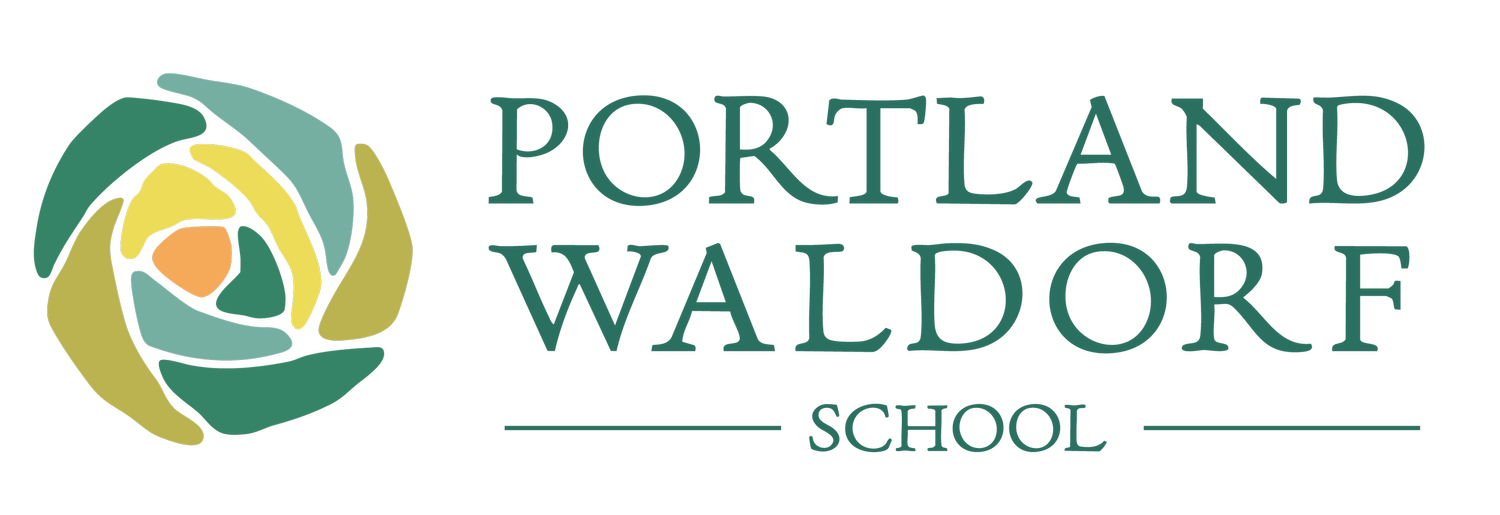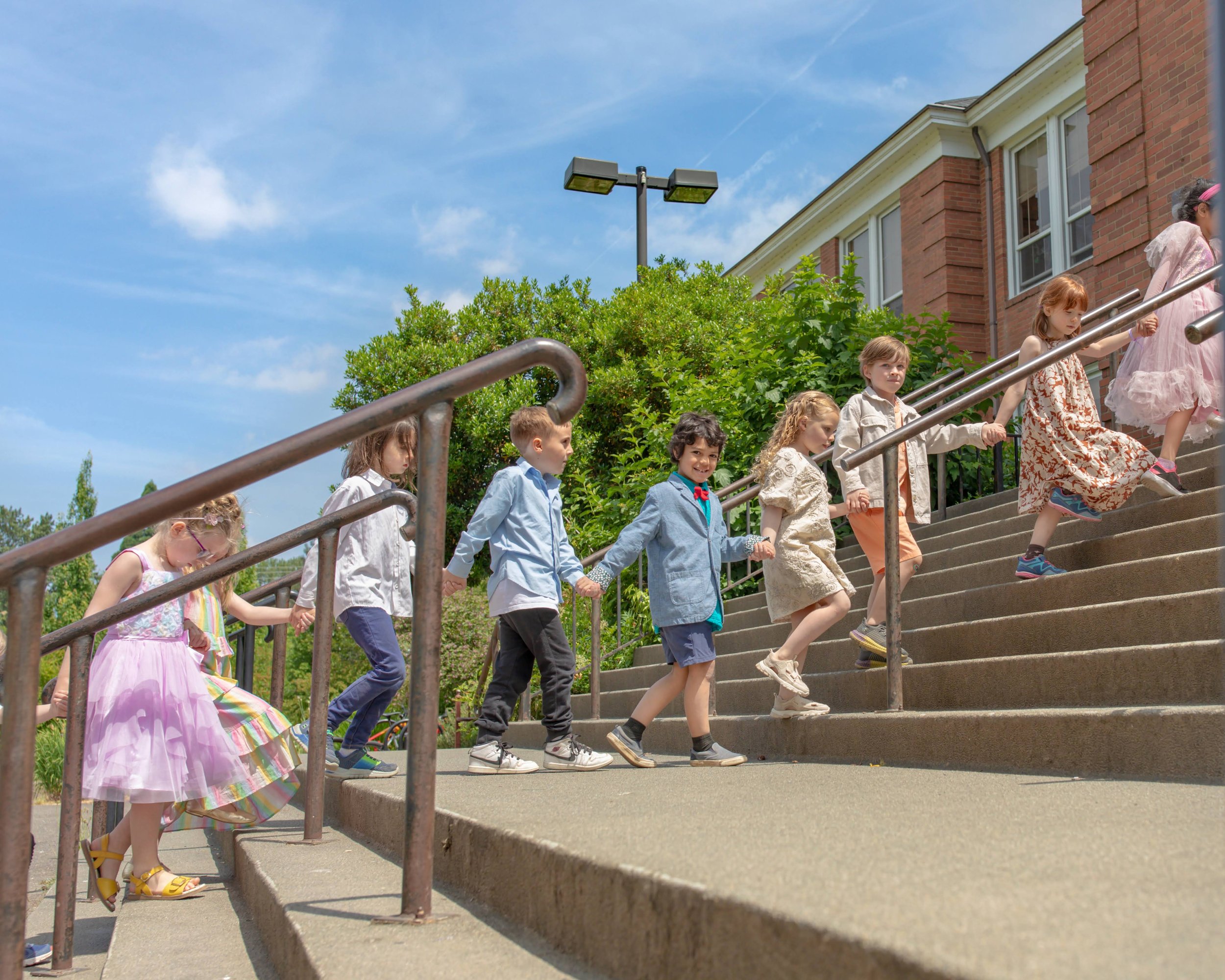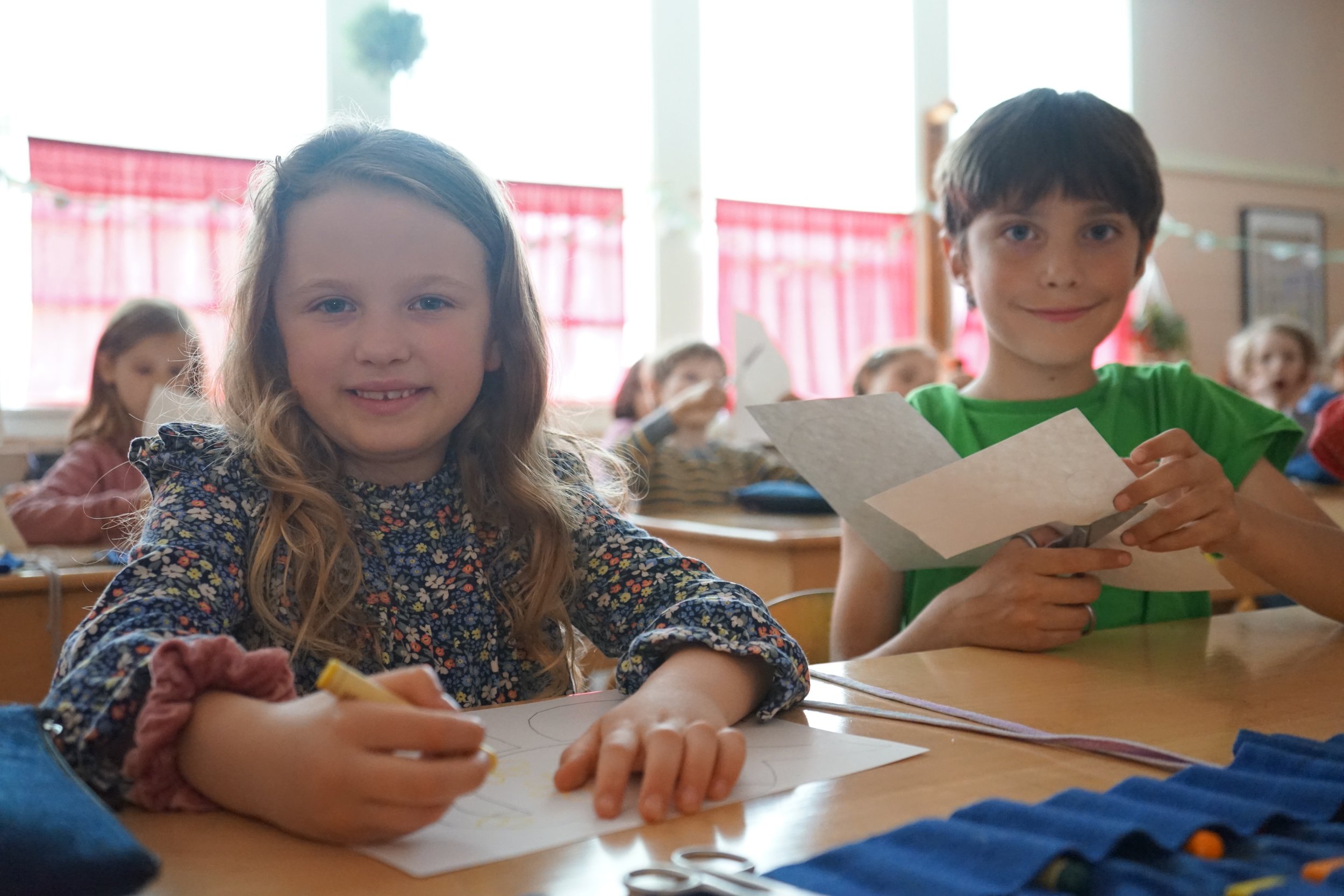
Grades 1-8
What Makes Our Grade School Unique?
Each year of Grade School is taught from a curriculum rooted in an intimate knowledge of child development to nurture the imagination, cultivate the intellect, and recognize the unique spirit of each child. In Grade School, the class teacher stays with their students for many years, developing a close relationship with not only each child but with the class as a social organism. The students are supported by a group of subject teachers, who all work together to create a community in which students can flourish.
Eager to Learn & Grow
Learning is a tangible activity that engages their entire being through experience and imagination. Our Grade 1 students listen to fairy tales and nature stories, draw letters and numbers, and learn letter sounds and combinations. These decoding activities, built upon the rich oral storytelling of the early childhood years, provide strong foundations for reading, writing and vocabulary.
Grade 1 math is a subject on the go! Movement accompanies the introduction and practice of all four arithmetic processes.
Grade 1 students also learn songs and poems in Spanish and Mandarin by ear, begin to develop spatial awareness through eurythmy, and train their fingers to knit and play the wooden flute.
Students must be 6 years old by June 1, 2024.
GRADE 1
GRADE 2
Mirroring the Inner Experience of the Child
The highest human ideals are illustrated through the stories and biographies of saints, legendary heroes and other exemplary human beings. These are contrasted with the trickster animals in fables, planting the seeds of human morality to develop and grow.
Students illustrate these stories as their reading and writing skills strengthen, learning their cursive letters, exploring symmetry form drawing, and building their fine-motor skills and knitting. Grade 2 counting games lead to working with place value, times tables and more complex arithmetic.
GRADE 3
Growing into Themselves
In Grade 3 children begin to experience their first sense of unique individuality. And the curriculum is designed to reflect this evolving inner experience: responsibility for the campus gardens, hands-on farming and cooking, the study of clothing and shelter, and an overnight trip to a local farm bring the curriculum to life.
Grade 3 students also study Old Testament stories of the expulsion from the garden to the trials of the Hebrew people, while measurements for building and cooking lend math a practical lens. Daily music continues in the classroom, as Grade 3 students are introduced to the lyre and violin, and officially join our music program with two class periods each week.
GRADE 4
Year of Adventure
Grade 4 students delve into the heroic tales of Norse mythology, and explore the journey of Oregon Trail pioneers and the indigenous peoples of the Pacific Northwest.
Science study begins with the animal kingdom. Fractions are introduced in math, and studies in English focus on grammar and parts of speech as other means of building a framework for exploring the world around us. Themes of division and fractions are echoed in form drawing, where students create patterns in a four-way mirror, in the same way that they design their own unique cross-stitch piece in handwork class. Students expand their music study by choosing to further their development with the violin, or elect to try a different stringed instrument—the cello or viola.
GRADE 5
Observation & Inquiry
Grade 5 students balance the wonder of early childhood with an increasingly internal focus, as teachers build confidence and encourage the beginning of independent academic thinking.
Grade 5 studies history for the first time as an academic discipline rather than a collection of stories—beginning with ancient India, Persia and Egypt. The year culminates with a study of ancient Greece, itself a culture of balance and harmony: foreign language includes a block in Ancient Greek, while in physical education the students learn the skills of the ancient Pentathlon and participate in a Greek Olympiad.
The study of geography expands from state to nation. Subject classes in choral music teach vocal harmony, and the study of botany deepens scientific observation and inquiry skills.
GRADE 6
Start of Middle School
The Grade 6 student tends to be inwardly focused, entering Middle School and the self-consciousness of puberty. The curriculum focuses on physics, geology and astronomy, encouraging students to carefully observe before jumping to conclusions. In history the focus is on the Roman Empire and Middle Ages: The growth and decline of empires introduces a study of world geography that continues throughout Middle School. Medieval Europe brings the concept of chivalry, and a conscious morality that culminates in another athletic event—the Medieval Games—held with a spirit of honor, sportsmanship, and ethical conduct. In music, students are offered the opportunity to switch from their stringed instrument to the study of a band instrument.
GRADE 7
Self-Expression & Discovery
A rapid expansion of academic capability and curiosity is reflected in Grade 7 with a focus on the Renaissance. Social, artistic and scientific developments, as well as biographical studies of the era’s explorers, inventors and artists fuel the students’ internal Age of Discovery. Perspective and geometric drawing feed artistic impulses, while study of mechanics, inorganic chemistry, nutrition and physiology echo the great leaps in understanding of human beings and the world during the Renaissance era. Mathematics moves into the conceptual realm of negative numbers, square roots and ratios; and creative writing paves another avenue for self-expression and discovery.
GRADE 8
Confident & Prepared
In the culminating year before High School, students move into modern history with the American, French and Industrial Revolutions, and on into the 20th century. Our study of the sciences includes meteorology, physiology, physics and organic chemistry. Students prepare for high school mathematics in algebra and geometry, while handwork and woodwork classes introduce the exciting use of sewing machines and power tools. Grade 8 continues their education in movement, music, eurythmy and foreign language. In addition, each student proposes and carries out an extensive independent-research project with written, oral and hands-on components. The class celebrates the end of their eight-year journey together with a multi-day class trip: active time spent together as they stand ready for the transition to High School.
Why Waldorf Education Matters
Curious about what makes Waldorf education different? Waldorf schools engage in creative, social and environmental actions, educating children for the whole of life. Students emerge as creative, independent thinkers who meet the world with initiative and purpose.









